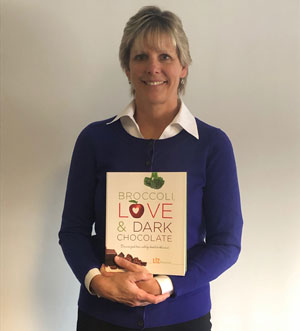
DDSB staff learn about the link between the foods we eat and mental well-being
“What we eat can profoundly impact our mental health and well-being,” says Liz Pearson, a registered dietitian and professional speaker.
For the third installment of DDSB EdTalks, Pearson stopped by the Education Centre in Whitby on February 26th to present Durham District School Board (DDSB) staff with some cold, hard facts about the relationship between what we eat and our mental health.
Pearson shared a few different studies that look at the link between what we consume and depression and anxiety. A study from the University of Warwick states that the more fruits and vegetables someone eats, the happier they are, “ideally we should be eating eight servings per day. [In the study] people who were closer to eight servings were significantly happier than those who ate less. Those who consumed almost no servings to zero servings showed depressive symptoms similar to those of someone who had just lost their job.”
Some of Pearson’s keys to improving mental health through diet include:
- Vegetarians should replace meat with lots of nuts, beans, and vitamin supplements to reduce depression
- Dark leafy greens can play a huge role in combatting stress
- Adding herbs and spices to meals and tea could double or triple nutritional intake
- Fish is rich in omega-3 fats which are ideal for reducing anxiety
- According to the European Food Safety Authority, women should drink about six and a half cups of water per day to improve memory, response-time, focus, and energy levels. Men should drink about eight cups per day.
She also busted myths about drinking coffee and wine, “two to three cups of coffee per day, and two to seven glasses of red wine per week are good for you,” explains Pearson. Coffee beans and red wine are rich in antioxidants which help to protect cells from the effects of “free radicals” that cause damage to cells.
After her presentation Pearson sold signed copies of her book Broccoli, Love, and Dark Chocolate, and answered one-on-one questions about health and happiness.
To find out more about Pearson’s happiness diet, her books, or her research-based presentations visit www.lizpearson.com.

Leave a Reply